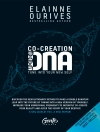This book captures current trends and developments in the field of systems thinking and soft operations research which can be applied to solve today’s problems of dynamic complexity and interdependency. Such ‘wicked problems’ and messes are seemingly intractable problems characterized as value-laden, ambiguous, and unstable, that resist being tamed by classical problem solving. Actions and interventions associated with this complex problem space can have highly unpredictable and unintended consequences. Examples of such complex problems include health care reform, global climate change, transnational serious and organized crime, terrorism, homeland security, human security, disaster management, and humanitarian aid. Moving towards the development of solutions to these complex problem spaces depends on the lens we use to examine them and how we frame the problem. It will be shown that systems thinking and soft operations research has had great success in contributing to the management of complexity.
Tabella dei contenuti
Part 1: Organizational Theme.- Using systems modeling to examine law enforcement collaboration in the response to serious crime .- Managing Complexity in Organizations through a Systemic Network of Projects .- Family of Related Systemic Elements (Fo RSE™) Matrix: Big(ger) Picture Thinking and Application for Business and Organizations.- Part 2: Disaster Management Theme.- Disentangling wicked problems: a reflexive approach towards resilience governance.- Post-disaster reconstruction – what does it mean to rebuild with resilience.- Black swans, dragon kings and beyond: towards predictability and suppression of extreme all-hazards events through modeling and simulation.- Part 3: Systems approaches Theme .- Supporting Intelligence Analysis through visual thinking.- The Benefits of systems-thinking approach to accident investigation.- Systems Theory as a foundation for discovery of pathologies from complex system problem formulation.- Soft (?) social systems and shocks: an experiment with an agent based model.- System Failure? Why humanitarian assistance can’t met its objectives without systems thinking- and why it finds it so hard to use it.- Using First Nations systems thinking to operationalize sustainable development .












